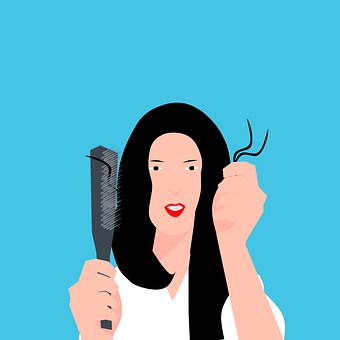Stress and hair loss: Here is how they are related
Hair loss is a common problem that affects millions of people worldwide. There are various reasons for hair loss, such as age, genetics, hormones, and stress. Stress is a significant contributor to hair loss and can make the condition worse. In this blog post, we will discuss the relationship between stress and hair loss and ways to manage stress to prevent hair loss.
The link between stress and hair loss.
Stress can affect your body in many ways, and one of the ways it affects your body is by disrupting the normal hair growth cycle. The hair growth cycle consists of three stages: anagen (growth), catagen (transition), and telogen (resting). Stress can cause an increase in the number of hairs in the telogen phase, leading to hair loss. This condition is called telogen effluvium.
Telogen effluvium is a type of hair loss that occurs when a large number of hair follicles enter the resting phase prematurely due to stress. This condition can cause sudden hair shedding, and the hair may come out in clumps. Telogen effluvium is usually temporary, and hair growth returns to normal after a few months.
Stress can also cause hair loss in people who are genetically predisposed to hair loss. In these individuals, stress can trigger the onset of male or female pattern baldness.
Ways to manage stress to prevent hair loss
If you are experiencing hair loss due to stress, it is essential to manage your stress levels to prevent further hair loss. Here are some ways to manage stress:
1. Exercise regularly: Exercise is an excellent way to reduce stress levels. It releases endorphins, which are natural stress relievers, and can help you relax.
2. Practice relaxation techniques: Relaxation techniques such as deep breathing, meditation, and yoga can help reduce stress levels.
3. Get enough sleep: Lack of sleep can increase stress levels. It is essential to get enough sleep to help your body recover from stress.
4. Eat a healthy diet: A healthy diet can help reduce stress levels. Foods that are high in omega-3 fatty acids, such as salmon and walnuts, can help reduce stress.
5. Talk to someone: Talking to someone, such as a friend or a therapist, can help reduce stress levels.
6. Seek professional help: If your stress levels are high and you are experiencing hair loss, it is essential to seek professional help. A dermatologist or a healthcare provider can help determine the cause of your hair loss and provide treatment options.
Conclusion
Stress is a common problem that can affect your overall health and well-being, including your hair. If you are experiencing hair loss due to stress, it is essential to manage your stress levels to prevent further hair loss. By incorporating healthy lifestyle changes, such as exercise, relaxation techniques, and a healthy diet, you can reduce stress levels and promote hair growth. If you are concerned about your hair loss, it is essential to seek professional help.



Comments
Post a Comment